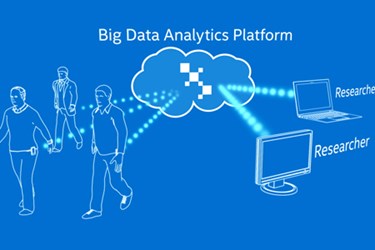Intel, Michael J. Fox Foundation Partner To Fight Parkinson's
By Jof Enriquez,
Follow me on Twitter @jofenriq

Tech giant Intel Corp. and the Michael J. Fox Foundation (MJFF) recently announced a research collaboration that will involve thousands of Parkinson’s disease (PD) patients using smartwatches and other wearable devices. Using big data analytics, the partnership will seek to develop new treatments for the insidious nervous system disorder.
In the planned multiphase study, patients will wear a Pebble Technology-made smartwatch capable of tracking tremors, sleeping difficulties, and other symptoms typically experienced by Parkinson’s patients, according to the Wall Street Journal. The data collected from the devices will be anonymized, stored, and analyzed by researchers using big data analytics to find new insights into the disease, which affects some 5 million people worldwide.
Forbes identified Intel’s Basis smartwatch as the device to be used by the patients during the research study. The device can track heart rate and movement, weighs 1.55 ounces, and syncs wirelessly with laptops, Android, and Apple iOS devices, the report said.
According to Intel’s statement, the device can process more than 300 observations per second from each patient, enabling the real-time monitoring of patients. The big data analytics platform will consist of Cloudera software and Intel architecture elements. With an Intel-developed analytics application, the platform will be able to produce more accurate predictive models to monitor the progression of the disease, measure the efficacy of drugs, and assist doctors with clinical decisions, the company said.
Later this year, Intel will launch a mobile app for patients to track how they feel and their medication intake, among other clinical data. The software platform will correlate their input with the data collected by the biometric sensors in their wearable devices, the company said in the statement.
“The researchers are dying for the insight,” Ronald Kasabian, general manager of big data solutions at Intel, said in an interview with the BBC. “The ability to see what is happening to the patient on a minute-by-minute, 24 hours a day, 365 days a year basis — the tremors, the sleep habits — to see that in real time will be one of the most eye-opening opportunities.”
In a statement, the MJFF described existing trials and clinical exams done on Parkinson’s patients as “outdated methods” that fail to capture accurately the changes in symptoms and the progression of the disease over time.
“Parkinson’s is a 24-hours-a-day, seven-days-a-week disease. Patients and their doctors need a better way to monitor PD, and researchers need a more objective way to measure the effect of new drugs. The solution might come through the use of wearable devices such as smartwatches,” the statement read.
“The answers are within us,” Fox told USA Today. “We just need to find a way to let people into our brains both literally and figuratively to help us figure this out.”
Fox established his eponymous foundation in 2000, two years after going public with his Parkinson’s diagnosis. Former Intel CEO Andy Grove, who is also fighting the disease, initiated the project with Fox’s foundation, according to the WSJ.
Intel follows other industry players that have rolled out big data projects involving health-centric wearable devices. Google recently launched its Google Fit platform which will collect data from wearable devices and upload it into the cloud. Samsung had earlier launched its Simband smartwatch and SAMI platform, with similar features. Apple later announced its HealthKit app for the upcoming iOS 8 system, which will allow other apps and devices to share data and present that data in a composite health profile.
Image Credit: Intel
